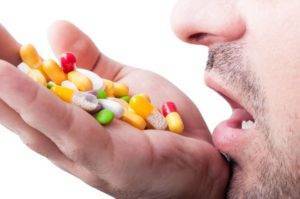
Today, prostatitis is one of the most common male diseases. This is not surprising. None of the representatives of the stronger sex are immune to its development. Pain, discomfort, problems with potency and urination - these are just a few of the things that threaten sick people.
Is there a cure for prostatitis, a fast-acting cure? What are the effective remedies for this disease offered by the pharmaceutical industry? How to choose the best prostatitis medication? Let's try to solve this problem. And let’s start with why prostatitis appears.
Causes of the development of this disease
Prostatitis is a disease of the prostate gland accompanied by inflammation.
As a rule, the causes of the development of this disease are:
- bacterial infections;
- allergic reactions;
- immune system damage, accompanied by decreased immunity;
- prolonged exposure to cold conditions, stress, unhealthy diet;
- hormonal changes;
- circulatory disorders of the organs, which are the result of certain diseases, for example, ischemic heart disease or atherosclerosis;
- prolonged sexual abstinence;
- intentional prolongation of intimate relationships.
Remedy for prostatitis
It is natural that the question of what is the most effective cure for prostatitis in men worries everyone who has the disease. However, there is no definite answer. This is explained by the fact that the disease can develop under the influence of many facts, and therefore, one pill for prostatitis does not exist.
Conventional prostatitis treatment is divided into three directions, which complement each other and include:
- etiotropic therapy;
- pathogenetic therapy;
- symptomatic therapy.
Let's consider these indicators in more detail and the most effective analysis for prostatitis.
Etiotropic therapy
Etiotropic therapy allows you to eliminate the cause of the disease. The development of prostatitis, as a rule, is associated with bacteria, and therefore, in this case, antibiotics are used primarily, prescribed by a doctor, depending on the clinical picture.
Pathogenetic therapy
Pathogenetic therapy complements etiotropics, if the latter method to combat prostatitis is clearly inadequate. For this purpose, in this case can be used:
- alpha - blocker;
- peptide bioperaturan;
- herbal products;
- means to increase blood circulation.
Symptomatic therapy
Symptomatic treatment allows you to eliminate the symptomology of the disease that is causing the patient difficulty. The vast majority of drugs in this group fall into the fast-acting category, and are therefore mistakenly considered the best.
Drugs like these include:
- nonsteroidal anti-inflammatory drugs (NSAIDs) with analgesic and antipyretic effects;
- hormone preparations;
- antispasmodik;
- sedatives that have sedative, sedative effects and analgesic levels.
Attention!Medication should be prescribed exclusively by a physician. Self-medication in the treatment of prostatitis is unacceptable.
Microclysters, growers and suppositories
In addition to pills and injections, for prostatitis it is prescribed:
- preparation (patch) - a procedure that involves pouring a particular drug into the urethra opening (the procedure is performed by a urologist, and the amount of medication poured, as a rule, does not exceed 5 ml);
- microclips;
- candles.
Traditional medicine
In most cases, traditional medicine is a good addition to medicines prescribed by urologists.
In this case, the following recipe is commonly used:
- Recipe 1.One pound of raw sunflower seeds is peeled, crushed, mixed with two hundred grams of honey, rolled into balls and put in the refrigerator. While treating prostatitis, take one or two balls three times a day.
- Recipe 2.Forty grams of propolis is poured with two hundred milliliters of rubbing alcohol. Ten grams of the resulting extract is mixed with two grams of cocoa. Wax is formed from the resulting mixture, which is then applied rectally.
In addition, parsley root, hemlock, celandine, asparagus, and black elderberry juice are used in the treatment of prostatitis.
Attention!Before using folk remedies, you should see a doctor.
While it is easy enough to find a quick-acting cure for prostatitis (a cheap drug designed to treat painful symptoms for patients), doctors should give treatment. Only he can determine the stage of the disease and prescribe the most effective therapeutic regimen.
























